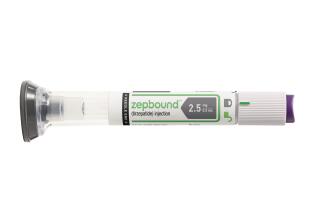Coming up: a pill with a digital sensor to track if you took your medicine

- Share via
U.S. regulators have approved the first drug with a sensor that can track whether patients have taken their medicine.
The Abilify pill was first approved by the Food and Drug Administration in 2002 to treat schizophrenia, and the sensor technology was approved for marketing in 2012. The FDA said Monday that the digitally enhanced medication “works by sending a message from the pill’s sensor to a wearable patch.”
“Being able to track ingestion of medications prescribed for illness may be useful for some patients,” Dr. Mitchell Mathis of the FDA said in statement. “The FDA supports the development and use of new technology in prescription drugs and is committed to working with companies to understand how this technology might benefit patients and prescribers.”
Abilify MyCite was developed by Otsuka Pharmaceutical Co., based in Japan, and the sensor was created by Proteus Digital Health, based in Redwood City, Calif.
Greenlighting the new digital version, however, came with some caveats. Although the system can track doses, it hasn’t been shown to improve patient compliance, the FDA said.
“Abilify MyCite should not be used to track drug ingestion in ‘real-time’ or during an emergency,” the agency said, “because detection may be delayed or may not occur.”
Patients can track their dosages on their smartphones and allow their doctors or caregivers to access the information through a website.
In a statement issued in May when the FDA accepted submission of product for review, the companies said that “with the patient’s consent, this information could be shared with their healthcare professional team and selected family and friends, with the goal of allowing physicians to be more informed in making treatment decisions that are specific to the patient’s needs.”
The companies said the sensor “activates when it reaches stomach fluids and communicates with the patch.”
The FDA approved digital Abilify for the treatment of schizophrenia, bipolar disorder and as an add-on treatment for depression in adults.
ALSO
New guidelines classify nearly half of U.S. adults as having high blood pressure
Over-the-counter painkillers treated painful injuries just as well as opioids in new study
More to Read
Inside the business of entertainment
The Wide Shot brings you news, analysis and insights on everything from streaming wars to production — and what it all means for the future.
You may occasionally receive promotional content from the Los Angeles Times.









